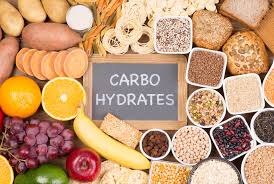You’re probably wondering why, having listed the benefits above, I’m not telling everyone to get on the diet as the list is pretty much everything people come to a trainer for.
The biggest negative to the diet is the huge restrictions. Limiting your diet to such low carbohydrates is hard enough for a week, from reading the studies on the keto diet it can take between 1-3 months to reach ketosis and some people simply can’t achieve it. So it’s not the sort of diet you can dip in and out of. It’s 100% a lifestyle choice and when you are in you’re in. Depending on who you speak to 1 or 2 drinks can pull you out of ketosis. Now I’d say that if you can successfully stick to the restrictions required for 3 months then you probably have no problems with willpower so you could quite easily manage a different less extreme diet that could give you the same results.
Like anything it’s not a diet for everyone, some people will read this and enjoy the challenge and enjoy the idea of needing to do blood tests and others will run a mile.
What’s important to note is that for any diet to work you still have to reduce your total calorie intake. You can just as easily gain weight on a keto diet if you overeat. It’s not magic it’s simply another type of restriction
One of the reasons cutting carbs works, for losing weight in the short term, is due to a reduction in stored water and glycogen stored in your muscles. However, keeping carbs too low for a sustained period of time could have serious consequences.
Adequate carbohydrates consumption has an important role to play in many body functions including things like hormone production. The hypothalamus and pituitary glands in our brain are sensitive to energy availability. The hypothalamus and pituitary work together with other glands such as the adrenals. Long term low carbohydrate intake can disrupt normal hormone function of luteinizing hormone (LH), follicle-stimulating hormone (FSH) – and sex hormones, oestrogen, progesterone and testosterone. Low carbohydrate intake can also affect other hormones such as cortisol and T3 (thyroid hormone). Sustained low carbohydrate intake and high exercise activity can lead to:
- Decreased thyroid output
- Increased cortisol and decreased testosterone
- Muscle catabolism
- Suppressed immune function
- Disrupted menstrual cycle
It’s easy to get caught up in a fad diet, but most fad diets are going to be bad or not sustainable. For many years we thought the key to fat loss was a low-fat diet. Low fat, high carb didn’t work. People felt deprived and hungry; they “cheated” with “fat-free”, high sugar treats; and they ended up eating a lot of rice cakes.
Now we have swung the other way with low carb high fat bandwagon where we can eat nut butter, cream and avocado. Unfortunately, the low carb diet isn’t working for most of us either.
The thing to always remember is carbohydrates and refined carbohydrates are very different things. All natural carbohydrates are good for you and should be eaten. White rice and white potatoes are no better or worse than sweet potato and brown rice. They are all natural and nutrient dense foods that can and should be eaten especially if you are training regularly.
Whilst refined carbohydrates which have been processed should certainly be controlled. It’s worth noting that just because a food is processed it doesn’t mean you can’t eat it. Just be aware that it’s often easier to eat more processed carbohydrates as they are hyper-palatable compared to natural carbohydrates.
When selecting your carbohydrates always consider your tolerance to the food type. Some people experience gastrointestinal distress and feel sluggish after certain forms of carbohydrates and others might cause joint issues etc. We’re all different which is why any blanket rule about nutrition ie “cut carbs” is utter nonsense.
So here are some of my personal favourites:
White basmati rice: As I mentioned before, don’t think white rice is somehow inferior to brown or wild rice. It has a slightly lower nutrient profile. However post-workout lower fibre is usually a good thing as they are easily digested and absorbed and usually won’t cause the gastrointestinal issues that you might find with its higher fibre counterpart, wholegrain rice.
Chickpeas: I could have put any legume in here really but I love chickpeas as they have higher protein levels which is great if you are trying to reduce animal protein intake plus they form the base of possibly my favourite food, hummus.
Bagels: They contain roughly 45g of carbs and 8g of protein. If you’re someone that is exercising daily you will be allowed somewhere between 100-250g of carbs per day. There is no reason why you cant enjoy a bagel, it’s all about balance.






